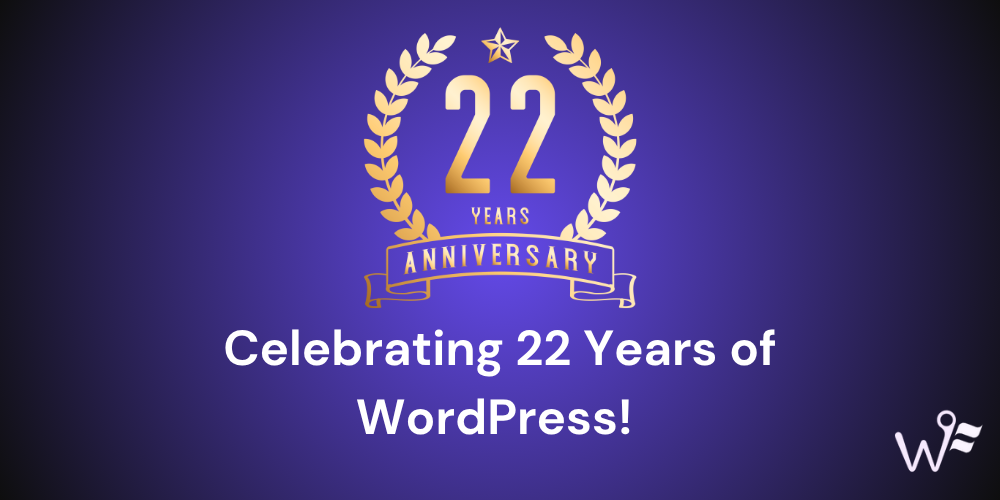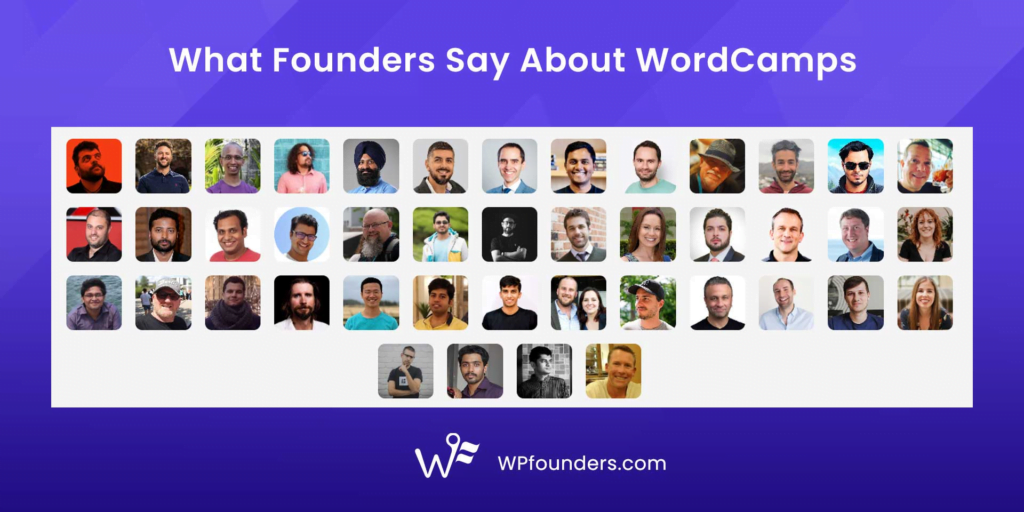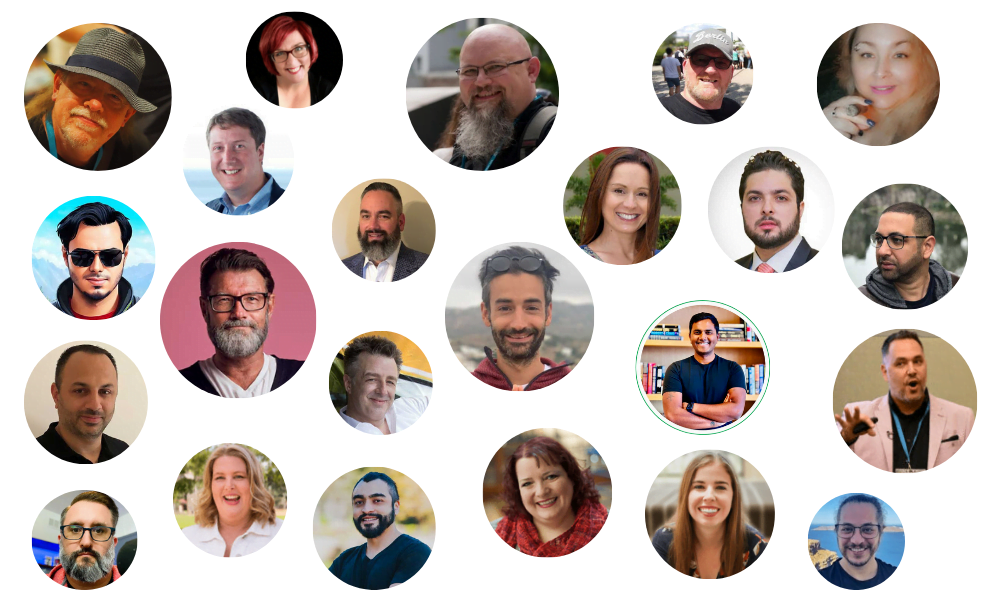Twenty-two years ago today, two college students with a shared vision changed the internet forever. On May 27, 2003, Matt Mullenweg and Mike Little released the first version of WordPress, born from the discontinued b2/cafelog blogging platform. What started as a simple fork in Mullenweg’s University of Houston dorm room has evolved into the backbone of nearly half the internet.
Here’s a little backstory. When the original b2 blogging software stopped receiving updates, nineteen-year-old Mullenweg saw an opportunity rather than an obstacle. Partnering with British developer Mike Little, they embarked on creating something better: a blogging platform that prioritized user freedom, code elegance, and democratic publishing. An entity that comprises 44% of websites in the world started with a modest 8KB release of WordPress 0.7, an update that not many would have predicted would reshape digital publishing.
Source: W3Techs
The Evolution of a Digital Giant
WordPress didn’t just grow; it transformed. The platform’s journey from a simple blogging tool to a comprehensive content management system mirrors the web’s own evolution. The introduction of themes in 2005 democratized web design, allowing users to change their site’s appearance without touching code. The plugin architecture launched the same year and created an ecosystem that would eventually host over 60,000 extensions.
Perhaps most significantly, WordPress evolved beyond blogging. WordPress’s most transformative leap came with its entry into ecommerce through WooCommerce, launched in 2011. This plugin didn’t just add shopping cart functionality—it established WordPress as a serious contender in online retail. Something that, at the time, was just getting started.
Today, WooCommerce powers over 28% of all online stores globally, making WordPress a publishing platform and an ecommerce powerhouse.
Standing Strong After Two Decades
Today, WordPress powers 43.3% of all websites on the internet, a staggering achievement in an industry known for rapid obsolescence. While countless competitors have emerged and faded, WordPress has survived and thrived. Platforms like Squarespace, Wix, and Webflow have captured market segments, but none have challenged WordPress’s fundamental dominance.
The numbers tell the story: over 835 million websites, 75 million active plugins, and a community of contributors spanning every continent. WordPress has become more than software—it’s digital infrastructure, powering everything from personal blogs to major news outlets like The New York Times and BBC America.
As WordPress enters its twenty-third year, the platform faces new challenges from AI-powered website builders, modern JavaScript frameworks, and specialized ecommerce platforms promising easier setup and better performance. Yet its open-source foundation, massive ecosystem, and proven track record of adaptation across content management and ecommerce suggest that WordPress’s most innovative chapters may still be ahead.
WordPress and Beyond
The college dorm room dream has become a digital empire, but perhaps more importantly, it has remained true to its founding principle: the reason why, even after 22 years, it remains a dominant force.
Over the years, WPFounders has interviewed many business owners who have set their bases on WordPress. Today, as we celebrate WordPress turning 22, we look at what many say about WordPress and its future.

We expect WordPress to continue to grow and be a dominant player in helping people get online with its CMS and associated tools.

WordPress is still the best platform for solid and extensive website development. Plus, now you can do a lot more than build a simple website on the WordPress platform. With a big ecosystem around WordPress, the future for sure is bright and promising.

I think WordPress will continue executing its long-term vision of Gutenberg. I’m really excited to see it become more polished with more blocks for functionality.

Looking ahead, I believe WordPress will continue to thrive as long as people value owning their platforms. However, the perception of WordPress as outdated is a challenge. My hope is that new, nimble WordPress plugins will emerge, addressing needs that existing plugins can’t meet due to their slower pace of innovation.

I don’t think WordPress is going anywhere anytime soon. Quite the opposite. I see it gathering more and more market share over the coming years.

WordPress is like PHP: too big to fail! And it is a huge advantage to work on a CMS whose market share is increasing year by year. I am very optimistic about its future.

I’m very optimistic about the future of WordPress and can currently only see it powering an even larger share of the web as time goes on.

For WordPress, I picture it as it will only become better, faster, and stronger. As with every industry, there’s always a threat which is good. It means there’s demand in this space and WordPress will be forced to continue striving to be the best out there. WordPress powers an unbelievably large percentage of the websites on the internet today and, with their dominance, I don’t foresee that will be changing anytime soon.

WordPress has become so big that it’s going to be here for a long time. It would be very difficult to recreate the ecosystem and community that has been formed so I don’t think there is going to be a significant new player soon. It will continue to evolve as a platform that can satisfy many different needs for web professionals and SMBs around the world.

I’m fairly confident in the future of WordPress over the coming 5 years. The market share speaks for itself, and more businesses trust WordPress to be a robust framework for high-end websites.

I really don’t see any threats to WordPress. At this point, it’s the Amazon of CMS. So big that it’s ubiquitous. So familiar and so many options. Picking anything else feels like abandoning comfort and mature solutions so you can build things completely from scratch. Yeah… no thanks.

WordPress is not going anywhere. It is improving day by day. I don’t see any other CMS that could be rock solid than WordPress in the near future. The only limitation with WordPress is your capability.

I see a great future for WordPress as well as the whole Ecosystem around it. WordPress took a significant step with the Gutenberg project and planned to keep it great for many years.

WordPress will continue to evolve as the go-to CMS because of its flexibility, strong community, and robust ecosystem. But complacency is a real threat. Platforms like Webflow are rising fast, and WordPress must keep innovating to stay ahead.

WordPress isn’t just software. Instead, it’s an open ecosystem, like an endless sea of opportunities to empower creators, developers, and businesses. Over the next five years, I think it will become even more powerful, accessible, and dynamic with full-site editing, AI-powered tools, and deeper third-party integrations.

Looking ahead, WordPress must continue to embrace change without losing its core values. The future will demand more automation, more intelligent systems, and new ways of delivering performance at scale.

As AI continues to evolve, WordPress will only grow in importance. Even if machines create and consume content, there must still be a system to store, structure, and distribute it. WordPress is perfectly positioned to be that system.

I don’t spend a great deal of time worrying about the future of WordPress. I think it still has legs, and it’s not going anywhere anytime soon. There will always be competitors. Competition is healthy for all sides. We keep an eye out for existential threats (looking at you AI), but mostly, we keep our attention on our customers and their evolving needs.

WordPress is only growing because of that beautiful community, the partnerships that are getting formed, and how things move forward with the joy you receive.

WordPress is continuously growing and I strongly believe it has great potential to grow in the future as well.

WordPress will continue to grow. There’s no doubt about it. As a leading platform for pretty much any website and an enormous community behind it, it’s hard to predict anything negative. Especially with the general direction WordPress is taking like headless etc.

WordPress is an unstoppable ecosystem thanks to the community that keeps iterating tirelessly to improve what’s already in place and add new features that open WordPress up to even more adoption.
We thank the founders for contributing to WPfounders, and their continued support of our mission to inspire future entrepreneurs in the WordPress ecosystem.
If you wish to share your story with the world, you can submit the form here. We are always eager to hear a new story and learn something new.



